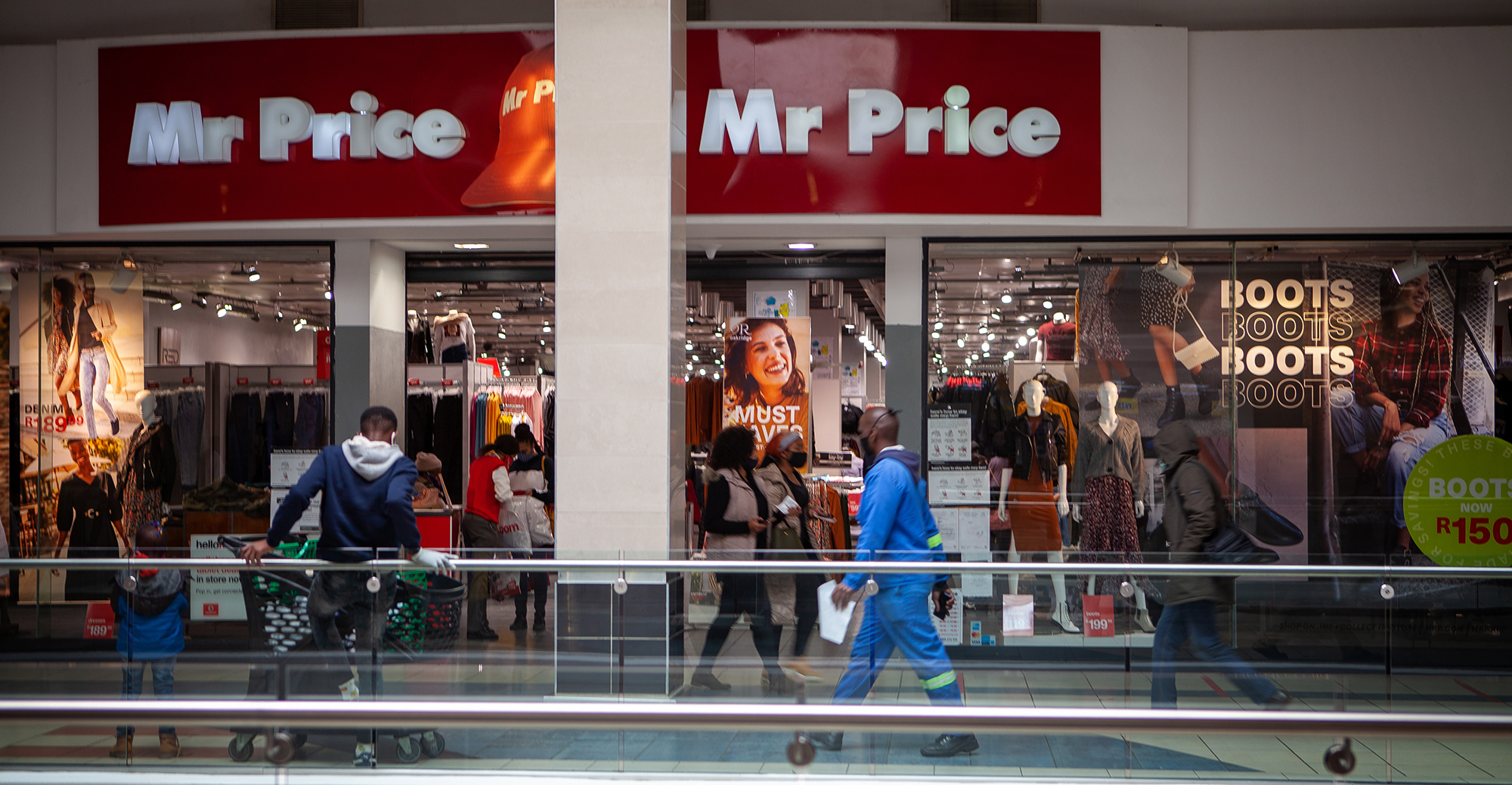Bianca Lakha, junior research analyst at Old Mutual Wealth Private Client Securities, says the outlook for local fashion retailer Mr Price remains challenging, with constrained consumers preferring credit, while the group has had to absorb the high cost of moving to alternative energy sources to cope with rolling blackouts.
A quarterly trading update released by Mr Price a week ago revealed that the stock had underperformed analyst and investor expectations. The share price declined sharply on the back of the announcement, falling 10% from R177.44 to R159.51 five days later.
While recent acquisitions all achieved double-digit sales growth for the quarter from October to December 2022, sales growth across flagship brands was weak.
“Mr Price Apparel (sales up 2.2%) and Mr Price Home (sales down 3.5%) underperformed during a period that traditionally sees these segments register their strongest sales growth.
“This underperformance resulted in group retail sales, excluding Studio 88, rising 1.2%,” says Lakha.
The 1.2% increase in retail sales is a poor performance, given that the period under review includes the festive season and Black Friday, both of which fall in the busiest retail season of the year.
The retailer had previously warned that stores were significantly impacted by load shedding, as many do not have back-up power supplies.
Visit Daily Maverick's home page for more news, analysis and investigations
At the interim results presentation in October last year, management reported that the group had lost more than 80,000 trading hours to load shedding, with 44% of total lost trading hours occurring in September alone.
Chief executive Mark Blair said that 70% of stores would be on back-up power by the end of 2023, with the rest following soon after, so hopefully this will reflect in the annual results to March 2023.
Last week, Blair noted that the impact of rolling blackouts can be seen in the significant variances in sales growth between stores that have back-up power and those that do not. The group has since taken urgent steps to limit the effect of load shedding, albeit at considerable cost.
While at first glance the group’s sales numbers appear great, they fall dismally short once recent acquisition Studio 88 is stripped out, with South African retail sales up only 1.5% and online sales down 6.1% as customers continue to return to physical stores.
Lakha points out that the group reduced its credit appetite during the quarter, with its credit approval rating falling to just under 19% from 32% in the prior quarter.
“This would have negatively impacted consumer purchasing power and consequently sales. New credit applications increased by 31%, highlighting consumers’ preference for short-term credit.
“While Mr Price will continue to advance credit prudently in order to preserve the quality of its credit book, SA consumers’ increased appetite for credit is likely to benefit peers with less stringent credit approval processes,” she says.
This bears out with The Foschini Group (TFG) posting a robust performance for the third quarter, reflecting a 5.5% growth in credit retail turnover.
The group seems to have done a much better job at managing the load shedding crisis, despite losing 112,000 trading hours during the third quarter alone.
Chief executive Anthony Thunstrom says the investment in battery back-up power solutions proved sound and partly mitigated the impact of rolling blackouts in the South African businesses.
As at 31 December 2022, at least 1,455 stores had back-up power, representing 70% of TFG Africa’s turnover, with plans to ensure all stores have back-up power over the next few months.
Additional diesel and security costs were incurred to protect operations and stores impacted by deeper levels of load shedding.
A Woolworths trading update earlier this month, for the half year to December 2022, shows that turnover and concession sales grew 11%, strengthening to 12% in the last six weeks of the period, while online sales grew by 4.5% and contributed 4.2% of South African sales.
Truworths also had a glowing report, with group retail sales increasing by 13.7% to R11.3-billion for the first 26 weeks of the 2023 financial year.
“This was despite a record level of electricity load shedding in South Africa, and increasing pressure on consumers’ disposable income in both South Africa and the United Kingdom due to rising interest rates and high levels of inflation,” Truworths told shareholders on Thursday.
Retail sales for the last nine weeks from end October 2022 to end December 2022 increased 10.6% to R4-billion.
All South African stores in the Truworths group are able to trade during rolling blackouts, either manually (i.e. offline) or by way of back-up power installed by the group or made available by landlords.
“At the end of the current period, approximately 77% of Truworths Africa’s turnover was covered by back-up power. The group continuously assesses the back-up power needs of its stores and will install additional or extend existing back-up power solutions where appropriate.
“Notwithstanding these efforts, load shedding is likely to have had a negative impact on retail footfall, and consequently on retail sales, especially in malls without back-up power,” says group chief executive, Michael Mark. BM/DM





